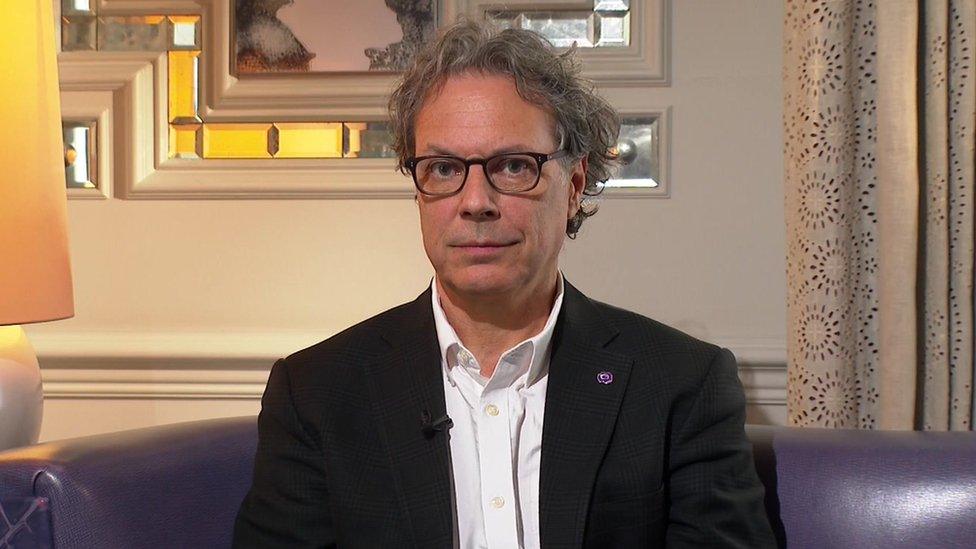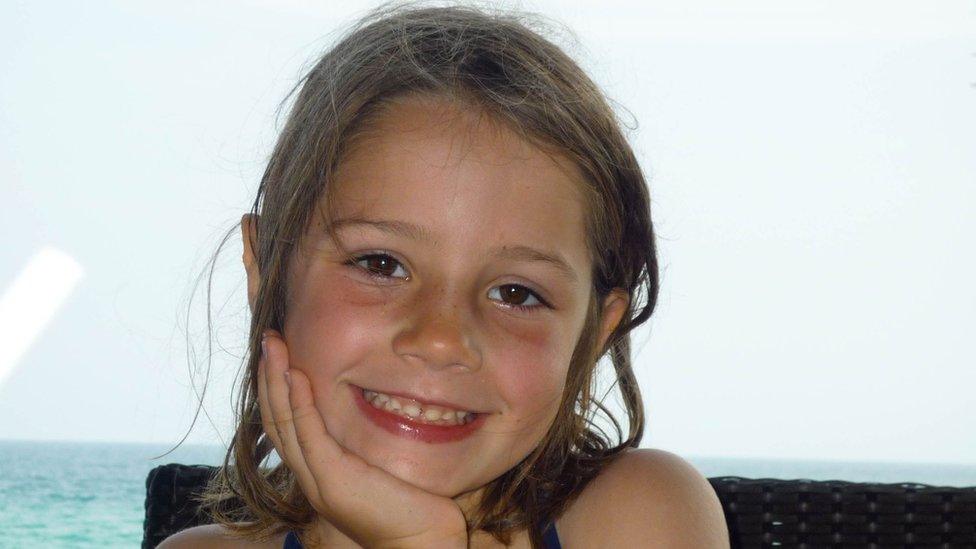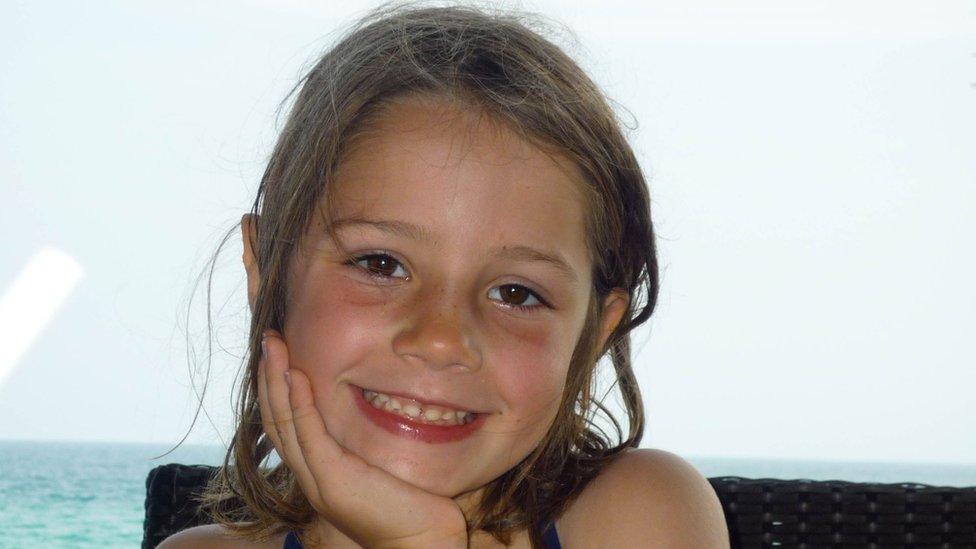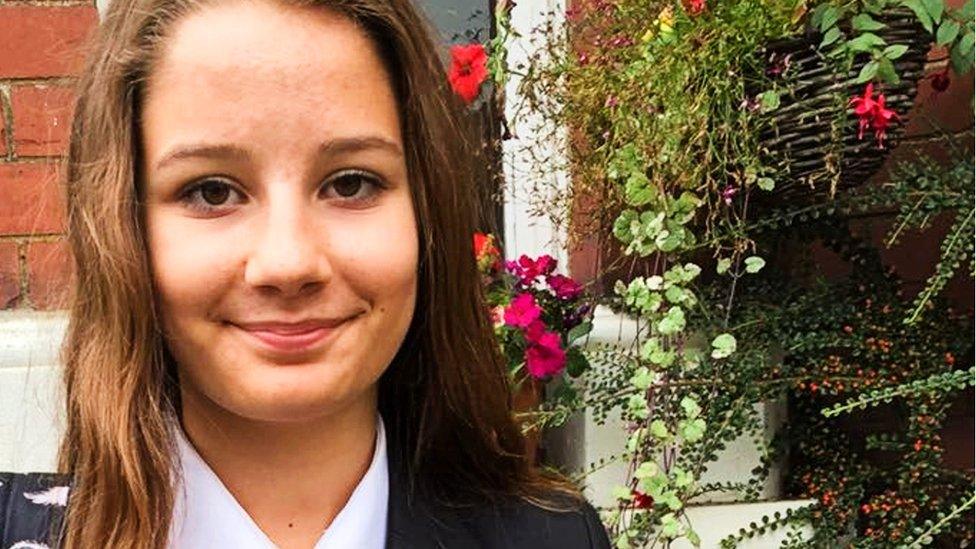Molly Russell: Dad wants no further delay to online harm bill
- Published
Watch: Molly Russell's father says social media corporate culture "must change"
The father of 14-year-old Molly Russell says "there is no time for delay" in legislating to stop children seeing harmful content online.
An inquest found social media material contributed "more than minimally" to Molly's suicide in 2017.
Despite being reassured the Online Safety Bill would not be watered down, Ian Russell said he remained concerned that it could be delayed further.
He also said online platforms must stop self-regulating their content.
Molly Russell took her life five years ago after an act of self-harm while suffering depression.
He told BBC Radio 4's Today programme: "The current government has said that they want the UK to be the safest place in the world to be online and yet we're still here and we're not regulating the platforms.
"I think it's really important, firstly, that something that is illegal in the offline world must be illegal and we must be better protected when it's found on the online world.
"And I think the hardest thing that the online safety bill is tackling is perhaps this content that's described as 'legal but harmful'."

Ian Russell says families should talk directly about concerns
Mr Russell revealed the new culture secretary, Michelle Donelan, called him last week "to reassure me that the government took this [Online Safety Bill] very seriously and it wasn't going be... watered down".
The Online Safety Bill aims to lay down rules in law about how platforms should deal with harmful content.
Andrew Walker, the senior coroner for north London, said Molly, from Harrow, north London, appeared as a healthy girl who was flourishing at school, having settled well into secondary school life and displaying an enthusiastic interest in the performing arts.
However, Molly had become depressed, something common in children of this age, the coroner said. The inquest was told her condition worsened into a depressive illness.
"She died from an act of self-harm while suffering from depression and the negative effects of online content," the coroner said.
"She had access to images, video clips and text concerned with self-harm and suicide, or that were otherwise negative or depressing in nature."
The coroner ruled she saw images that "shouldn't have been available for a child to see".

If you've been affected by self-harm or emotional distress, help and support is available via the BBC Action Line

Mr Russell also paid tribute to his daughter.
He said: "She was one of the most endearing, gorgeous, extraordinary people. She was so insightful, I couldn't wait to see what she was going to do."
He revealed that although he was pleased with the coroner's conclusions, the inquest itself had affected his family.
"When the verdict came in, I think we were quite numb and we're still processing it," he said.
"It was exhausting for us as a family. It was two weeks in court, but five years since Molly died.

Molly saw content that "shouldn't have been available for a child to see" the coroner said
"When it's the death of your youngest child who has ended their own life, it's just an extraordinary overwhelming grief which is the strongest anyone can ever feel.
"So the inquest itself couldn't compete with those early days of of huge grief and just struggling to get by second by second sometimes.
"But it really did reconnect us with those moments and remind us how much we miss Molly and how much we wish she hadn't seen that content and that she was still with us."
He also urged families to create an environment where issues can be openly discussed.
He added: "I think the most important thing as a family is to find a way to cross the generations so that the parents can keep a channel of communication going with their children.
"That transition that happens from being a child to being an adult, those teenage years, are some of the hardest years we all live through.
"It's really important to try and not push anything that's a wedge between the generations and try and keep talking about mental health, talking about suicide if you need to.
"It's more safe to talk about suicide. If you have worries about a child, I've learned since Molly's death, don't keep them to yourself, be direct and talk directly to your child about it.
"My prime reason for doing this is to prevent other fathers, families and sisters going through this."

Follow BBC London on Facebook, external, Twitter , externaland Instagram, external. Send your story ideas to hellobbclondon@bbc.co.uk
Related topics
- Published30 September 2022

- Published27 September 2022

- Published22 September 2022

- Published21 September 2022
